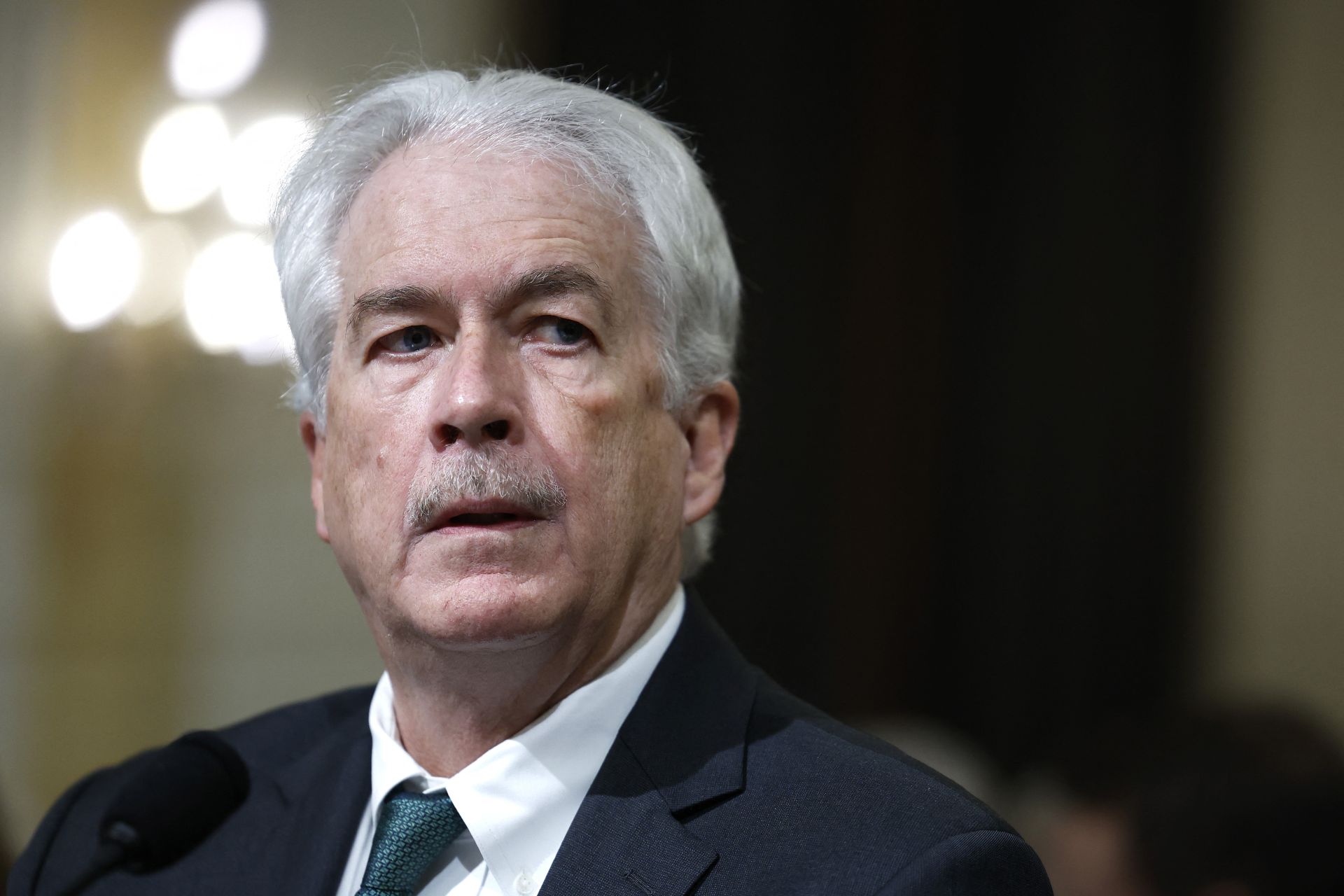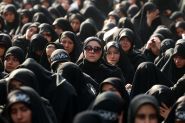- Home
- Middle East
- CIA Chief: Iran Has Not Decided to Develop Nuclear Weapon

CIA Director William Burns listens during a hearing with the House Intelligence Committee in the Cannon Office Building on March 12, 2024, in Washington, D.C. ©Anna Moneymaker / GETTY IMAGES NORTH AMERICA / Getty Images via AFP
CIA Director William Burns said on Monday that there is no evidence that Iran has decided to build a nuclear weapon. He added that if Iran were to make such a decision, the United States and its allies would likely be able to detect it soon after it occurs.
Speculation has centered on whether Israel might strike Iranian nuclear sites to prevent Tehran from potentially developing a nuclear bomb.
Speaking at the Cipher Brief security conference in Sea Island, Georgia, Burns noted that Iran has advanced its nuclear program by stockpiling uranium enriched to near weapons-grade levels. As a result, if Iran decides to pursue a bomb, it could quickly secure enough fissile material, allowing less time for a response.
“No, we do not see evidence today that the supreme leader has reversed the decision he made at the end of 2003 to suspend the weaponization program,” Burns said, referring to Iran's leader, Ayatollah Ali Khamenei, who issued a fatwa against nuclear weapons in 2003.
He mentioned that Iran has developed the “means of delivery” for a potential nuclear weapon by increasing its missile arsenal. Following the US withdrawal from the Joint Comprehensive Plan of Action (JCPOA) in 2018, Tehran “is in a much closer position to produce a bomb’s worth of enriched material for a single weapon,” Burns added.
When the JCPOA was in effect, it would have taken Iran over a year to amass enough highly enriched uranium for a nuclear weapon, according to Burns. “Now it’s probably more like a week or a little more to produce one bomb’s worth of weapons-grade material. So the risks have increased,” he said.
“I think we are reasonably confident that – working with our friends and allies – we will be able to see it relatively early on. But the great danger is that this compressed time frame creates new challenges for us,” he explained.
Burns highlighted Israel's significant tactical successes against Hezbollah, Iran’s most prominent proxy, and noted that Hamas, another Iranian proxy, has also seen a substantial degradation of military strength over the past year.
The challenge lies in combining these battlefield gains with “smart diplomacy” to cease hostilities between Israel and Iran-backed groups.
Even though leaders in both Iran and Israel may not be seeking an all-out conflict, “there remains a risk,” Burns cautioned. “In some ways, that has exposed some limitations in Iranian military capabilities,” he said. “However, that doesn’t suggest those capabilities are not still quite potent, which is something both Israel and the US need to take very seriously.”
Read more



Comments